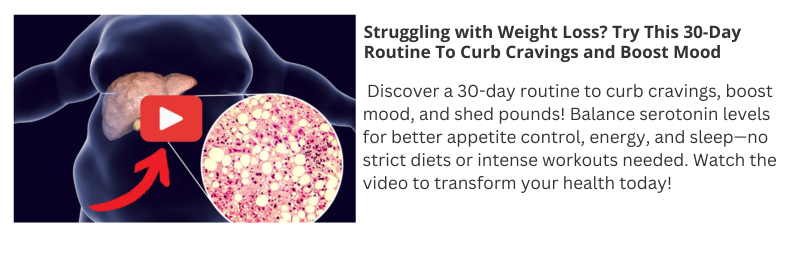Acid reflux, a condition characterized by stomach acid flowing back into the esophagus, can cause symptoms such as heartburn, regurgitation, and even difficulty swallowing. A common solution to alleviate these symptoms is through the use of over-the-counter medications, but these drugs may not always be effective or have undesirable side effects. In these cases, natural remedies such as consuming probiotics have been explored as potential alternatives to manage acid reflux.

Probiotics are live microbial cultures that, when ingested in adequate amounts, are believed to provide various health benefits, including improved digestion and a better-functioning immune system. They may also play a role in reducing the occurrence and severity of acid reflux symptoms by balancing the gut microbiota and promoting healthy stomach function. In this article, we will discuss the best probiotics for individuals dealing with acid reflux issues, the distinct advantages of using them, and the necessary considerations when incorporating probiotics into one’s diet.
Key Takeaways
- Probiotics may help alleviate acid reflux symptoms by promoting healthy gut bacteria.
- Certain strains of probiotics have demonstrated better efficacy in reducing acid reflux symptoms.
- Probiotic usage should be carefully monitored, considering factors such as dosage, method of intake, and potential side effects.
Understanding Acid Reflux and Probiotics
Acid reflux occurs when stomach acid flows back into the esophagus, causing discomfort and a burning sensation. This condition is also known as gastroesophageal reflux disease (GERD). The primary cause of acid reflux is a weakened lower esophageal sphincter, which allows the acid to escape the stomach. Factors such as obesity, smoking, and certain foods can contribute to a weakened sphincter and the development of GERD.
Probiotics are live microorganisms that promote a healthy balance of gut bacteria when consumed in adequate amounts. They can be found in certain foods, like yogurt and sauerkraut, or taken as supplements. Probiotics are essential for maintaining proper gut health and can help alleviate digestive issues, such as bloating, gas, and constipation.
In the context of acid reflux, probiotics may help by:
- Strengthening the gut barrier
- Reducing inflammation
- Balancing stomach acid production
When considering probiotic products, it’s essential to choose one with well-researched strains known to benefit digestion. The following are some probiotic strains that may be helpful for individuals with acid reflux:
- Lactobacillus acidophilus: This strain supports digestion and may help reduce the frequency of acid reflux episodes.
- Bifidobacterium bifidum: Known to improve digestion, this strain may assist in reducing bloating and gas associated with GERD.
- Lactobacillus reuteri: This probiotic may improve gut health and directly slows down the secretion of stomach acid.
It is crucial to remember that not all probiotics are created equal, and individual experiences may vary. Consulting with a healthcare professional before starting any probiotic supplement is always recommended. With proper guidance and adherence to a healthy diet, probiotics may be a complementary approach to managing acid reflux symptoms.
Criteria for Selecting Probiotics

When choosing the best probiotics for acid reflux issues, it is important to consider a few crucial factors to ensure efficacy and safety. The following criteria will help guide consumers in making an informed decision.
Strain Diversity: A probiotic supplement with multiple strains of beneficial bacteria is recommended, as different strains offer varied benefits. Some of the most effective strains for acid reflux include Lactobacillus and Bifidobacterium species, such as L. acidophilus, L. reuteri, B. longum, and B. infantis.
Potency: It’s essential to select a probiotic with a high colony-forming unit (CFU) count, which represents the quantity of live, active microorganisms per dose. Aim for a product with at least 1 billion CFUs per serving, to ensure a sufficient amount reaches the gut.
Stability and Shelf Life: Probiotics are live bacteria, and their potency can diminish over time. Opt for a product with guaranteed potency through the expiration date and proper storage instructions (e.g., refrigeration or a temperature-stable formula).
Quality Assurance: Choose a probiotic from a reputable brand, with third-party testing and certification to ensure purity, potency, and safety. Examples include certification from NSF International, USP, or ConsumerLab.
| Criteria | Description |
|---|---|
| Strain Diversity | Multiple strains of beneficial bacteria |
| Potency | At least 1 billion CFUs per serving |
| Stability and Shelf Life | Guaranteed potency through expiration date |
| Quality Assurance | Third-party testing and certification |
In addition to these factors, it’s essential to consider personal preferences and dietary restrictions. Some probiotics may contain allergens (e.g., dairy, soy, or gluten) or come in a format that may not be suitable for all users (e.g., capsules, gummies, or powders).
By considering these criteria, consumers can make an informed decision about the best probiotics for their acid reflux issues, contributing to improved gut health and overall well-being.
Top Probiotic Strains for Acid Reflux
Lactobacillus Acidophilus
Lactobacillus acidophilus is one of the most commonly found strains of probiotics and has been found to promote a healthy gut environment. It has been known to improve digestion and reduce acid production, making it an ideal choice for those dealing with acid reflux issues. By helping to restore the balance of good and bad bacteria in the gut, this strain can prevent harmful bacteria from proliferating and causing discomfort. Some popular sources of Lactobacillus acidophilus include yogurt, kefir, and fermented foods like sauerkraut and kimchi.
Bifidobacterium Lactis
Another helpful probiotic strain for acid reflux is Bifidobacterium lactis. This strain has been shown to promote regular bowel movements and reduce inflammation in the gastrointestinal tract. A healthy gut means a less acidic environment, which can significantly reduce symptoms of acid reflux. Bifidobacterium lactis is commonly found in probiotic supplements, as well as in some dairy-based products like yogurt and cheese.
Saccharomyces Boulardii
Lastly, Saccharomyces boulardii is a probiotic yeast strain known for its ability to combat harmful bacteria and support overall gut health. As opposed to the other two strains mentioned, Saccharomyces boulardii is known for being resistant to harsh stomach acids. This enables it to protect the gastrointestinal tract from acid reflux damage effectively. It is commonly found in supplements and is particularly helpful for those who have taken antibiotics, as it can help restore gut balance after antibiotic treatments.
In conclusion, those struggling with acid reflux issues can benefit from incorporating probiotics like Lactobacillus acidophilus, Bifidobacterium lactis, and Saccharomyces boulardii into their diets. By doing so, they can improve their overall gut health and significantly reduce any discomfort associated with their condition.
Benefits of Probiotics for Acid Reflux

Probiotics have become increasingly popular as a natural remedy for a variety of gastrointestinal issues, including acid reflux. Acid reflux, also known as gastroesophageal reflux disease (GERD), occurs when stomach acid flows back up into the esophagus, causing irritation and discomfort. Probiotics could help alleviate these symptoms through several mechanisms:
- Restoring microbiome balance: A healthy gut microbiome is crucial for proper digestion and preventing the overgrowth of harmful bacteria. Probiotics can introduce beneficial bacteria, helping to restore balance and prevent acid reflux symptoms.
- Maintaining the esophageal barrier function: Some strains of probiotics may help strengthen the esophageal barrier, making it more resistant to stomach acid. This could aid in reducing the occurrence of acid reflux episodes.
- Reducing inflammation: Probiotics have shown promise in reducing inflammation, which is often a contributing factor in acid reflux. By alleviating inflammation, probiotics may provide relief from acid reflux symptoms.
When it comes to selecting the best probiotics for acid reflux, there are several strains to consider. The most commonly recommended strains for acid reflux include:
- Lactobacillus acidophilus
- Lactobacillus reuteri
- Bifidobacterium bifidum
- Bifidobacterium longum
It’s important to note that each individual may react differently to various strains, so trial and error may be necessary to find the most effective one. Additionally, probiotic supplements should be taken under the guidance of a healthcare professional, as they may not be suitable for everyone.
In conclusion, the benefits of probiotics for acid reflux have a lot of potential, particularly in improving the gut microbiome balance, enhancing esophageal barrier function, and reducing inflammation. Incorporating probiotics into a holistic treatment plan may provide relief and contribute to improved overall gastrointestinal health.
Probiotic Foods vs. Supplements

When seeking relief from acid reflux issues, people often look to probiotics for help. These beneficial bacteria can be found naturally in various fermented foods or taken as dietary supplements, and both options have their advantages. In this section, we will compare probiotic foods and supplements to help you determine which option suits you best.
Probiotic Foods
Foods containing natural probiotics are known for their numerous health benefits. Some of the popular probiotic-rich foods are:
- Yogurt: This fermented dairy product contains live bacteria such as Lactobacillus and Bifidobacterium. Opt for plain, unsweetened yogurt to avoid added sugars.
- Kefir: A fermented drink made from milk or plant-based alternatives. It usually has a higher number and variety of probiotics compared to yogurt.
- Sauerkraut: Naturally fermented cabbage, rich in Lactobacillus bacteria. Choose the unpasteurized version to ensure that the beneficial bacteria are still present.
- Kimchi: A Korean fermented vegetable dish usually made from cabbage, radish, or cucumber. It’s rich in probiotics and also contains beneficial vitamins and minerals.
Probiotic Supplements
While incorporating probiotic-rich foods into one’s diet is usually the preferred option, sometimes people find it more convenient to take supplements, especially if they don’t appreciate the taste of fermented foods. Probiotic supplements come in the form of capsules, tablets, or powders and contain specific strains of live bacteria that may be particularly helpful for acid reflux.
Some factors to consider when choosing probiotic supplements include:
- Strains: Look for products containing well-researched strains like Lactobacillus acidophilus, Lactobacillus rhamnosus, and Bifidobacterium longum.
- CFUs: Supplements should contain an adequate number of colony forming units (CFUs) – at least 1 billion per serving to ensure effectiveness.
- Quality: Reputed brands should have third-party testing and quality assurance to provide potent and effective products.
In summary, probiotic foods offer additional nutritional benefits, and their regular consumption may promote overall gut health. Supplements, on the other hand, provide targeted, concentrated doses of specific probiotic strains and may be more convenient for some individuals. It is essential to speak to your healthcare provider before starting any probiotic regimen, especially if you have underlying health conditions.
Recommended Probiotic Dosage

When it comes to probiotics for acid reflux issues, finding the correct dosage can be crucial for achieving desired results. Generally, daily probiotic dosages range from 5 billion to 10 billion colony-forming units (CFUs). However, it is important to note that individual needs may vary.
To help determine the appropriate dosage, consider the following factors:
- Severity of acid reflux symptoms: Higher dosages may benefit those with more severe symptoms, while lower dosages might suffice for mild discomfort.
- Dietary habits: Individuals with a diet high in processed foods and low in fiber may require a higher dosage to promote gut health.
- Current health status: Specific health conditions or the use of certain medications can influence the optimal dosage of probiotics.
At the beginning of your probiotic journey, it’s recommended to start with a lower dosage and gradually increase as needed to avoid potential side effects such as gas and bloating.
| Probiotic Strains | Suggested Dosage |
|---|---|
| Lactobacillus acidophilus | 1-2 billion CFUs |
| Bifidobacterium bifidum | 1-2 billion CFUs |
| Lactobacillus plantarum | 1-2 billion CFUs |
| Saccharomyces boulardii | 500-1,000 mg |
The above table provides a general guideline for the suggested dosages of common probiotic strains found helpful in managing acid reflux issues. However, it’s essential to consult with a healthcare professional prior to starting any supplementation, as individual needs can differ greatly.
In conclusion, the optimal probiotic dosage for acid reflux issues will depend on an individual’s specific needs and health circumstances. Starting with a lower dosage and adjusting as needed, while consulting a healthcare professional, is the best way to ensure optimal gut health and manage acid reflux symptoms.
Timing and Method of Probiotic Intake

Consistency is key when it comes to probiotic intake, especially for acid reflux issues. To reap the full benefits, it is advised to take probiotics daily, typically at the same time each day. This can help establish a routine and increase the chances of the probiotics working effectively.
It’s crucial to choose the right method of intake. Probiotics can be consumed in various forms, such as:
- Supplements: Capsules and tablets containing live strains of bacteria and yeasts.
- Fermented foods: Yogurt, kimchi, sauerkraut, and kombucha are natural sources of probiotics.
- Probiotic drinks: Some dairy and non-dairy beverages contain added probiotics.
In the case of acid reflux, it’s best to opt for milder forms, such as supplements or probiotic-enriched foods. Highly acidic or spicy fermented foods may exacerbate reflux symptoms.
The timing of consumption plays a significant role in optimizing the benefits of probiotics. It is advised to take probiotics on an empty stomach, either 30 minutes before a meal or 2 hours after eating. This ensures the probiotics have a chance to survive the acidic environment of the stomach and reach the intestines, where they can effectively work.
A few other factors to consider when using probiotics for acid reflux include:
- Quality: Choose reputable brands that guarantee a certain number of live bacteria at the time of consumption.
- Strains: Options such as Lactobacillus and Bifidobacterium strains are known for their positive effect on gastrointestinal health.
- Storage: Always follow the storage instructions provided on the package to ensure the probiotics maintain their efficacy.
Remember to consult with a healthcare professional before starting any probiotics regimen, especially for those with underlying health conditions or currently taking medications.
Potential Side Effects of Probiotics

When using probiotics for acid reflux, it is essential to be aware of any potential side effects. While probiotics are safe for most individuals, some people may experience adverse reactions.
Common side effects include:
- Bloating: As beneficial bacteria begin to break down and digest food in the gut, gas production may increase, resulting in bloating. This side effect is temporary and usually subsides within a few weeks.
- Gas: Similar to bloating, increased gas production occurs as the probiotics aid in digestion and the breakdown of food. This also tends to decrease over time as the body adjusts.
- Changes in bowel movements: Probiotics may cause changes in bowel movements, such as constipation or diarrhea. Again, this is often temporary and should improve as the body becomes accustomed to the probiotics.
There are also less common side effects that are important to watch for:
- Allergic reactions: While rare, some individuals might be allergic to specific strains of probiotics, resulting in symptoms like itching, swelling, or difficulty breathing. If this occurs, it is crucial to seek medical attention.
- Infections: While extremely unlikely, individuals with weakened immune systems, such as those with HIV, cancer patients undergoing chemotherapy, or those who have recently had surgery, might be at a higher risk of developing infections.
- Negative interactions with medications: In some cases, probiotics might interact negatively with certain medications, such as immunosuppressive drugs. It is crucial to consult with a healthcare professional before starting probiotics if taking any medications.
Despite these potential side effects, probiotics have been deemed safe for most individuals. It is always recommended that individuals experiencing any adverse reactions, especially severe or persistent symptoms, consult their healthcare provider.
Interactions with Medications

When considering the use of probiotics for acid reflux, it is essential to be aware of potential interactions with medications. Some common medications that may interact with probiotics include antibiotics, immunosuppressants, and certain heart medications.
Antibiotics are designed to kill harmful bacteria in the body but may also eliminate beneficial bacteria. Taking probiotics during or after a course of antibiotics can help replenish the gut’s healthy bacteria, but the timing is crucial. It is generally advised to take probiotics at least 2 hours after taking antibiotics to reduce the chance of interaction.
| Medication | Interaction with Probiotics |
|---|---|
| Antibiotics | Take probiotics 2 hours after consuming antibiotics |
| Immunosuppressants | Consult healthcare provider before taking probiotics |
| Heart medications | Be cautious and monitor symptoms when combining probiotics |
Immunosuppressants are medications that suppress the immune system, often prescribed for autoimmune conditions or organ transplant patients. Because probiotics impact the immune system, it’s critical to consult with a healthcare provider before incorporating them into a regimen that includes immunosuppressants. Potential side effects may occur if the balance of the immune system is disrupted.
Certain heart medications may also interact with probiotics. Research has shown that some Lactobacillus strains can break down bile salts and indirectly affect cholesterol levels. Although this can be beneficial for some individuals, it can be of concern for those taking heart medications. Be cautious and closely monitor any symptoms or changes when adding probiotics into a treatment plan that includes heart medication.
In conclusion, while probiotics may be effective in alleviating acid reflux symptoms, it is crucial to be aware of possible interactions with medications. Always consult a healthcare professional when unsure about introducing probiotics into a treatment plan that includes other medications.
Lifestyle Changes to Support Probiotics
In addition to supplementing with probiotics, incorporating certain lifestyle changes can significantly enhance their efficacy in alleviating acid reflux issues. The following recommendations can create a more conducive environment for probiotic growth and function:
- Dietary modifications: Consuming a balanced and diverse diet rich in fiber, fruits, vegetables, whole grains, and lean proteins can not only provide a solid base for beneficial gut microbes, but also help reduce reflux symptoms. Foods to avoid include:
- High-fat meals
- Spicy dishes
- Citrus fruits
- Chocolate
- Caffeinated beverages
- Alcohol
- Peppermint.
- Portion control and meal timing: Overeating can lead to increased stomach pressure and potentially worsen acid reflux. Opt for smaller meals more frequently, rather than overloading during a single meal. Avoid eating 2-3 hours before bedtime, as lying down too soon after eating can exacerbate reflux.
- Weight management: Excess abdominal fat can put pressure on the stomach, leading to increased risk of acid reflux. Engaging in regular physical activity, such as walking, yoga, or swimming, in conjunction with a healthy diet, can aid in weight loss and improve overall gut health.
- Stress reduction: Stress has been linked to gastrointestinal issues, including acid reflux. Incorporating relaxation techniques such as deep breathing exercises, mindfulness meditation, or yoga can help alleviate stress and potentially reduce reflux symptoms.
- Smoking cessation: Smoking weakens the lower esophageal sphincter, a muscular valve that prevents stomach acid from flowing back into the esophagus. Quitting smoking can significantly benefit digestive health and reduce the risk of acid reflux.
By adopting these lifestyle changes, individuals can support and enhance the effectiveness of their probiotic supplements in combating acid reflux issues.
Monitoring Your Progress
When incorporating probiotics into your diet to help manage acid reflux, tracking your progress is essential for understanding their effectiveness. Regular monitoring can help you identify which strains work best for your specific needs.
Begin by keeping a daily journal to record your symptoms, food intake, and any supplements or medications you’re taking. This allows you to identify patterns and trends in your reflux issue. Consider tracking the frequency, severity, and duration of symptoms before and after starting probiotics.
To quantify the effects of the probiotics on your acid reflux, create a simple table like the one below to assess improvements over time:
| Week | Frequency | Severity | Duration |
|---|---|---|---|
| 1 | |||
| 2 | |||
| 3 |
In addition to recording symptoms in your journal, pay attention to your overall well-being. Note if there are any changes to your digestion, mood, or energy levels, as these can be indirect indicators of how effective the probiotic is in your system.
Finally, actively communicate with your healthcare provider. Share your observations with them regularly to help fine-tune your acid reflux management plan. By maintaining an open dialogue, you can make informed decisions on whether to adjust dosages, change strains, or explore alternative treatments. Remember, results may vary between individuals, and finding the ideal probiotic for your acid reflux may take some time and experimentation.
Frequently Asked Questions
Which probiotics are recommended for managing GERD symptoms?
Probiotics containing Lactobacillus and Bifidobacterium strains are generally recommended for managing GERD symptoms. These strains can help by restoring the balance of gut bacteria, supporting digestion, and enhancing gut health.
What is the impact of probiotics on stomach acid in the context of acid reflux?
Probiotics may help manage acid reflux by supporting healthy digestion and reducing inflammation in the gut. This can potentially improve the effectiveness of the esophageal sphincter, preventing stomach acid from flowing back up into the esophagus. However, it is important to note that probiotics do not directly neutralize stomach acid.
How effective are probiotics in treating the symptoms of silent acid reflux?
While research is still ongoing, some studies suggest that probiotics may help alleviate some symptoms of silent acid reflux, such as throat irritation and coughing. However, their overall effectiveness in treating silent acid reflux is not yet fully understood, and sufferers should consult a healthcare professional for personalized advice.
Can probiotics designed to survive stomach acid benefit those with acid reflux?
Probiotics specifically designed to survive stomach acid, such as Bacillus coagulans or spore-forming probiotics, can potentially provide benefits for those with acid reflux. These probiotics can survive the harsh environment of the stomach and reach the intestines intact, where they can support gut health and digestion, possibly reducing acid reflux symptoms.
Which probiotic strains are beneficial for individuals with both IBS and GERD?
Individuals with both GERD and IBS may benefit from probiotic strains such as Lactobacillus rhamnosus GG, Bifidobacterium infantis, and Saccharomyces boulardii. These strains have been suggested to improve gut health, digestion, and reduce inflammation, which may help manage the symptoms of both conditions.
Are there any natural supplements that are comparable in effectiveness to probiotics for acid reflux?
Some natural supplements, such as deglycyrrhizinated licorice (DGL), slippery elm, and aloe vera, have been suggested to help manage acid reflux symptoms. However, their effectiveness in comparison to probiotics is not well-established, and individuals seeking natural alternatives should consult their healthcare provider for guidance.
Conclusion
In conclusion, selecting the best probiotics for managing acid reflux issues requires careful consideration of individual health needs and consulting with healthcare professionals. While certain probiotic strains may offer potential benefits for digestive health and acid reflux management, it’s essential to approach their use with caution and personalized guidance. Additionally, prioritizing a balanced diet, managing portion sizes, and adopting lifestyle habits that support digestive wellness are fundamental for addressing acid reflux symptoms. By integrating probiotic-rich foods and potentially targeted supplements into a comprehensive approach to digestive health, individuals can work towards managing acid reflux and promoting overall well-being.















